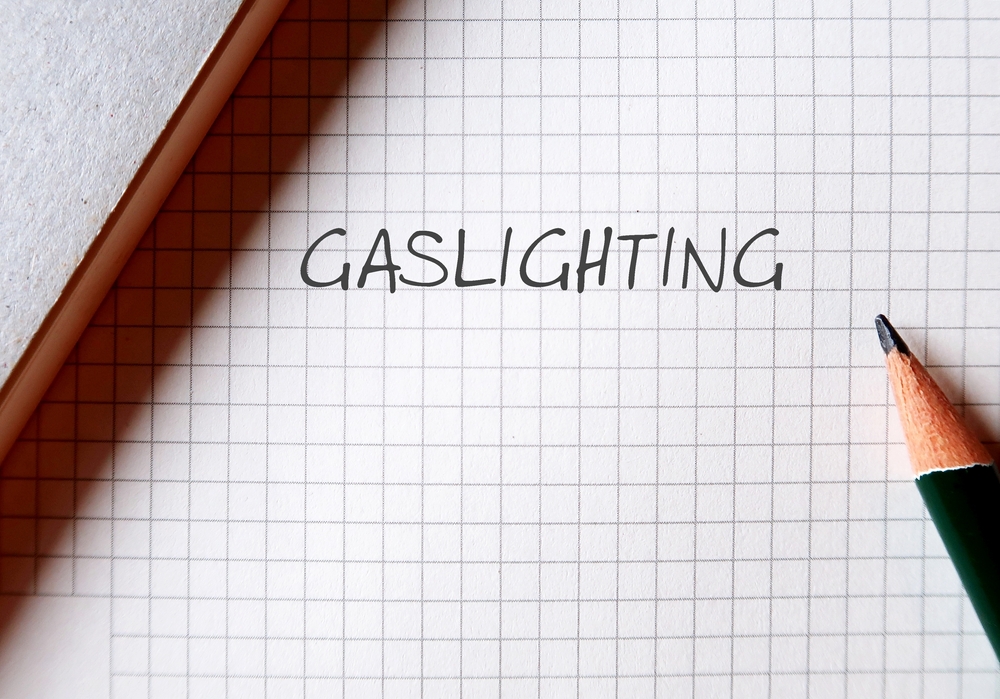
Narcissism, according to Psychology Today, “is characterized by a grandiose sense of self-importance, a lack of empathy for others, a need for excessive admiration, and the belief that one is unique and deserving of special treatment.” An estimated 5% of the U.S population may have narcissistic personality disorder (NPD), which is equal to over 16 million people. Narcissistic personality disorder is one of ten different types of personality disorders that is recognized in the Diagnostic and Statistical Manual of Mental Disorders, Fifth Edition (DSM-5). It is a chronic mental health condition that is characterized by a long-term pattern of exaggerated feelings of self-importance. Most often beneath the grandiose façade, individuals diagnosed with narcissistic personality disorder are hiding and avoiding deep feelings of insecurity. Gaslighting is one of the many abusive tactics people with NPD may use to protect their egos.
Narcissistic Gaslighting Basics
Gaslighting is defined in the Merriam-Webster Dictionary as the “psychological manipulation of a person usually over an extended period of time that causes the victim to question the validity of their own thoughts, perception of reality, or memories and typically leads to confusion, loss of confidence and self-esteem, uncertainty of one’s emotional or mental stability, and a dependency on the perpetrator.” Psychology Today provides the following examples of common traits of a narcissistic gaslighter:
- They refuse to hear your thoughts or concerns about anything
- They reframe, deny, or scoff at your recollection of certain events and blame you for them
- They insist that you did something that you know you did not
- They derail the topic when you try to explain your point of view
- They tell your loved one about how you are wrong in your actions
- They often tell you and others how you are being overly sensitive
There are some common signs that you might be getting gaslighted by someone with NPD, including but not limited to the following examples, provided by Healthline:
- Constantly have the urge to apologize
- Believing you are incapable of doing anything right
- Frequent feelings of nervousness, anxiety, or worry
- A loss of confidence
- Persistently wondering if you are too sensitive
- Feeling disconnected from your sense of self, as if you are losing your identity
- Believing you are to blame when things go wrong
- A nagging sense that something is not right, though you are unable to pinpoint exactly what is wrong
- A lingering sense of hopelessness, frustration, or emotional numbness
Gaslighting can have several harmful physiological effects on the victim. Some of the most common effects a victim of narcissistic gaslighting may develop include the following, provided by Medical News Today:
- Anxiety
- Depression
- Post-traumatic stress disorder (PTSD)
- Insomnia
- Weight gain or loss
- Memory loss
- Social isolation
- Substance abuse
- Self-harm
- Suicide
Although narcissistic gaslighting does not differ from normal gaslighting, it may be used by someone with NPD for slightly different manipulative purposes.
Treatment In Calabasas
Calabasas is a city in California. It is a well-known suburb of Los Angeles, located west of the San Fernando Valley and north of the Santa Monica Mountains. Over the past decade, the city of Calabasas has grown in its reputation for luxury as well as for privacy which makes it a hidden gem for residential living for society’s elite, and one of the most desirable destinations in Los Angeles County. It is also home to a plethora of highly qualified mental health clinicians providing an array of therapeutic services and treatment options.
The information above is provided for the use of informational purposes only. The above content is not to be substituted for professional advice, diagnosis, or treatment, as in no way is it intended as an attempt to practice medicine, give specific medical advice, including, without limitation, advice concerning the topic of mental health. As such, please do not use any material provided above to disregard professional advice or delay seeking treatment.
